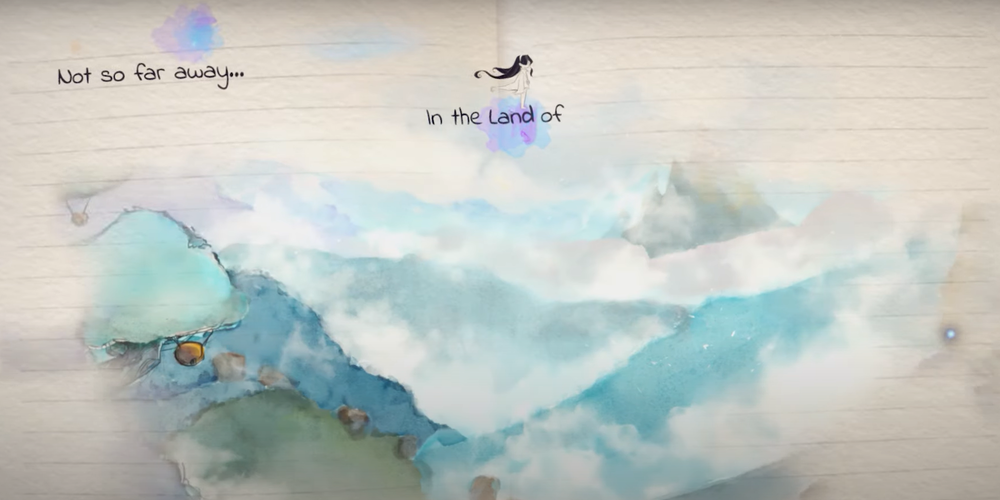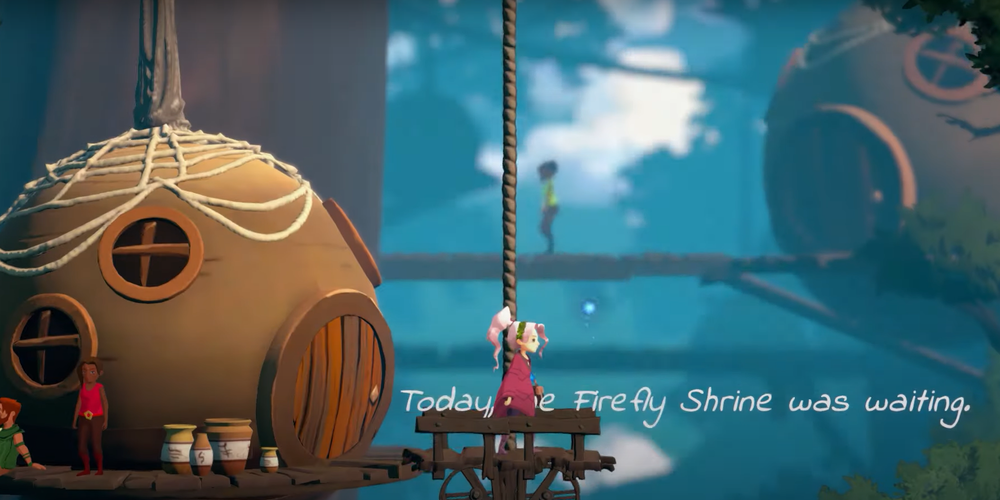Navigating Grief and Imagination in Lost Words: Beyond the Page
In an era where video games often push the boundaries of realism and complexity, "Lost Words: Beyond the Page" emerges as a poignant narrative-driven adventure that seeks to remind its players of the power of storytelling and the beauty that lies in simplicity. This game, crafted under the pen of renowned game writer Rhianna Pratchett, serves not just as a platformer but as an exploration of grief, maturity, and the healing capacity of words. As we unravel the layers of this game, its unique approach to storytelling, gameplay mechanics, and overall impact on its audience come into clearer focus.
A Leap Into a World of Words and Wonder
The game introduces us to two protagonists: Izzy, a young girl who channels her aspirations and emotional turmoil into the pages of her journal; and her creation, the guardian of the magical kingdom of Estoria. This dual narrative weaves together the real and the imagined, allowing players to traverse through the vivid landscapes painted by Izzy's words. It's through literally jumping across text that the game reveals its heart - a tale of loss stretched across the fantastical and the all-too-real.
The Journey Through Izzy's Imagination

In Estoria, we encounter a myriad of characters, from a vengeful sprite to mischievous merchants and a whimsical djinn, all contributing to the richness of this fabricated world. Despite its enchanting premise, one could argue that the fantasy segment feels like an extension of Izzy’s inner world rather than an essential chapter of the game. The puzzles, centered around the manipulation of words to alter the environment, offer a unique but not particularly challenging gameplay experience. It’s within these segments, however, that Pratchett’s story shines brightest, blending the fantastical with the raw edges of reality.
The Power of Simplicity
"Lost Words" bucks the trend of demanding flashy graphics or intricate mechanics, opting instead for a simple yet effective means of interaction. The game’s visual and auditory elements complement the story’s emotional beats, with environments ranging from dense forests to stark, color-drained landscapes reflecting Izzy’s internal journey. The minimalist approach extends to the gameplay, where the challenge lies not in testing the player’s reflexes but in engaging them emotionally with the narrative.
Where Gameplay and Story Intertwine
Perhaps the most striking aspect of "Lost Words" lies in its journal segments. Here, gameplay becomes a metaphor for navigating through grief and self-discovery. Players interact directly with Izzy’s thoughts, rearranging words to progress through the story. These segments, detailed with stunning illustrations and voiced narrations, offer a deeply personal look into Izzy’s character, making her joys, dreams, and pains palpable.
Reflections on a Digital Age

The game’s release amidst a world grappling with isolation and digital dependency adds another layer to its reception. Performance issues, likely exacerbated by the high demand on internet services, prompt a contemplation on the viability of cloud-based gaming platforms like Stadia. Yet, despite these hurdles, "Lost Words" stands as a testament to the potential of video games as a medium for storytelling, capable of offering solace and understanding in tumultuous times.
Concluding Thoughts
"Lost Words: Beyond the Page" is a game that may not resonate with all, particularly those seeking high-octane action or complex puzzles. However, for players looking for an emotionally charged experience, akin to the introspective journeys found in "walking sims," this game offers a unique allure. Through its exploration of loss, creativity, and the maturation of its young protagonist, "Lost Words" achieves something remarkable: it reminds us of the therapeutic power of storytelling, encouraging us to face our own narratives with courage and grace.


Comments 0
Leave a reply
Tell us what do you think about this review. Your email address will not be published.
Your comment is awaiting moderation. We save your draft here